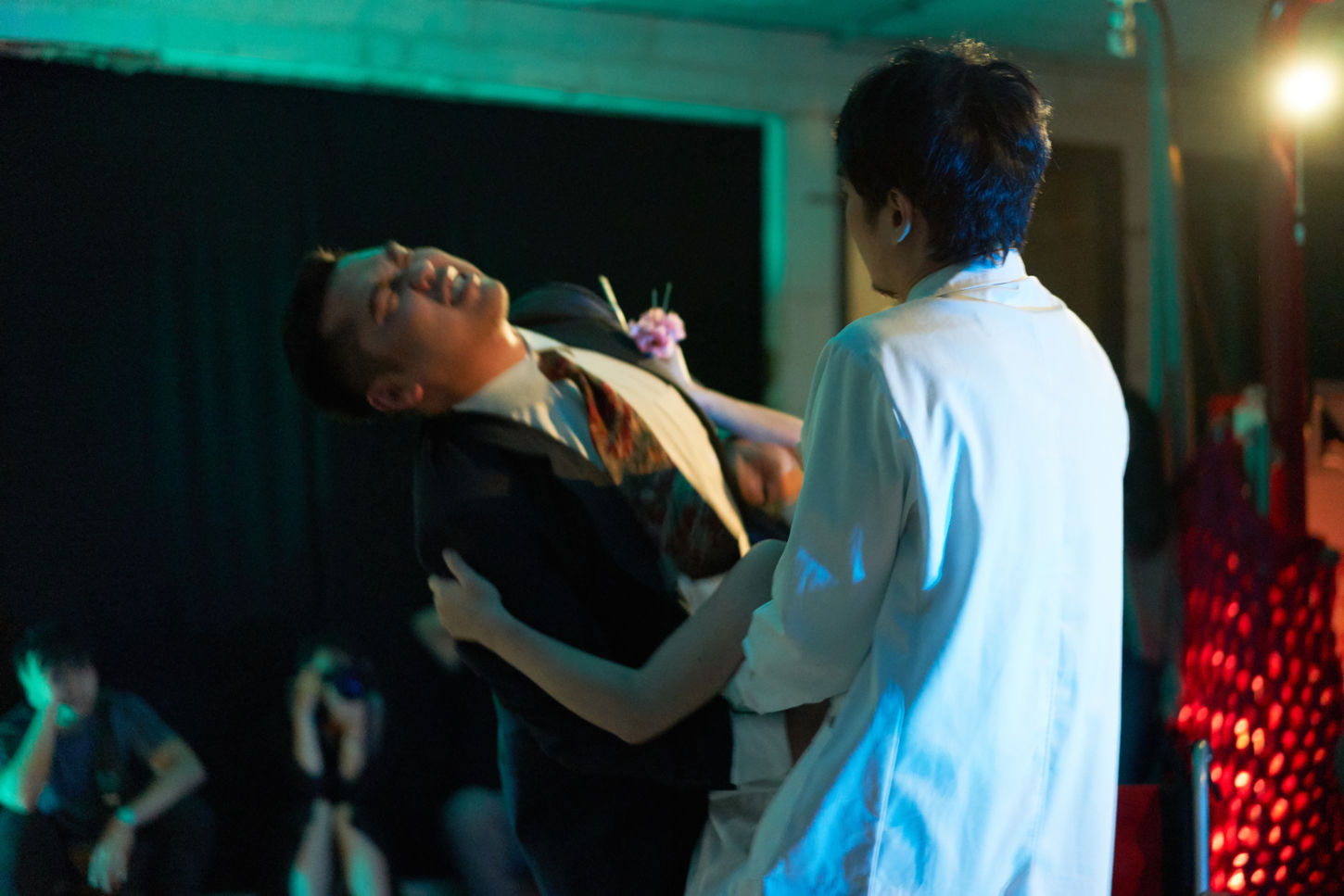
THE ELEVATOR's KEY
電梯的鑰匙




Venue|Mountain Bookstore
Exhibition Time|2019/6/13~6/16 11:00~18:00 Shows|2019/6/14(Fri) 18:30
2019/6/15(Sat) 14:30 & 18:30
2019/6/ 16 (Sun) 14:30
Playwright|Agota Kristof
Translator|Luo Jun
Director|Curator: Zhuang Jin-Wei
Artists: Lu Zhi, Huang Son-Gwan
Co-creation|Actors:
Wang Xiao-Jun, Zhou Rong-Jing, Tin Oi Chan, Chen Wei-Yun, Li Jin-Jie, Dai Hua-Xu
Costume Design: Ye Fang
Space Design: Zhuang Jin-Wei, Wu Zi-Jing, Wang Shao-Wei
Video Design: Wu Ting-Yun, Li Zhen
Lighting Design: Oasis Magnesium
Music Design: Liu Wen-Qi
Set production: Chen Xian-Da
Exhibition Special Design: BlueButton
Stage Manager: Huang Shang-Jia
Stage technical execution: Zhou Guan-Zhi
Lighting technical execution: Lian Yu
Behind the scenes staff: Lin Bo-Hua, Yang Kai-Lin, Zhao Youyu, Cai Zhenglin
Photographers: Shepherd Photography, Zhe She-Guang, Xie Zong-Han
"The Elevator's Key" is adapted from the short play "La Clé de l'ascenseur" by playwright Ágota Kristóf. The story tells the cruel fairy tale of a woman who is under house arrest by her husband.
On a large rock in the mountains on the edge of the city, the lady of the castle sits by the window every day, waiting for her husband, an architect, to return from work. Until one spring, she met a ranger of the hunting grounds while was walking in the forest. He gave her a bundle of flowers. Since this happened, her husband took elevator's key away. It is the only key could open the elevator which is the only way to connect with the house and the outside.
Since then, the woman had to stay at home all day long. Irreversible changes undergone day after day. And the doctor that her husband brings to relieve her pain is the beginning of fear.
We adapted into an immersive theater in the form of co-creation by the director and actors together. Multimedia materials such as installation art, video projection, and physical performance are combined to turn each floor of the performance building into the home and heart of the women in the play.
The work explores issues of power relations between men and women, urban development and nature, oppression and resistance.























